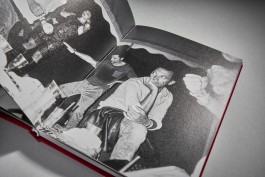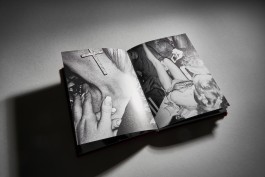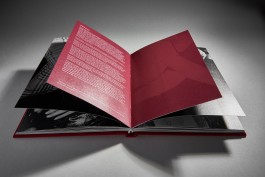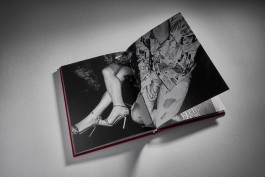It’s a pilgrimage to the Italian entertainment cluster. Rimini, capital of the Romagna Riviera, the mecca of post-war Italian holidays, later transformed into the privileged destination of party animals, transgression, erotic atmosphere, disco victims of the nineties. So writes on the book Aldo Bonomi, sociologist and author of the well-known essay ‘District of Pleasure’ (Bollati Borlinghieri, 2000): “at the center of the representation is the key figure of the ‘consumer actor, who showcases within an imaginary inspired by desiring lifestyles, lately transformed in merchandise. The island of pleasure represents them in its diversity of registries, rituals, and trends. The images tell of a new diversification of the social composition of the supply chain of emotions and desire.”






It’s a pilgrimage to the Italian entertainment cluster. Rimini, capital of the Romagna Riviera, the mecca of post-war Italian holidays, later transformed into the privileged destination of party animals, transgression, erotic atmosphere, disco victims of the nineties. So writes on the book Aldo Bonomi, sociologist and author of the well-known essay ‘District of Pleasure’ (Bollati Borlinghieri, 2000): “at the center of the representation is the key figure of the ‘consumer actor, who showcases within an imaginary inspired by desiring lifestyles, lately transformed in merchandise. The island of pleasure represents them in its diversity of registries, rituals, and trends. The images tell of a new diversification of the social composition of the supply chain of emotions and desire.”







Steve Bisson is an educator, curator, and writer.
He is the Chair of Photography at the Paris College of Art and co-founder of the international program Blurring the Lines, which fosters intra-academic dialogue and recognizes outstanding graduate work in photography and the visual arts. He is also the founder of the Urbanautica Institute, an online visual anthropology journal that has become a key reference for scholars and photography enthusiasts.
Bisson serves as Editor-in-Chief of the publishing house Penisola Edizioni and as Art Director of Lab27, a cultural center that advocates for issues at the intersection of image-making, photography, and society.
Over the past two decades, Steve Bisson has curated more than a hundred events—including exhibitions and festivals—and authored numerous essays and publications. He has collaborated with cultural and educational institutions worldwide and continuously questions the role of images in society.
• Coaching and Portfolio Review
Go to Coaching and Portfolio Review page
Steve Bisson has been delivering lectures, mentoring, and collaborating extensively with leading cultural and educational institutions around the world for the past 15 years and leaning to the understanding of the cultural and social dynamics associated with photography. In 2016, in collaboration with Klaus Fruchtnis, he co-founded Blurring the Lines, an academic network that fosters talent and dialogue in the visual realm.
—
Design by Roberto Vito D'Amico
Photo by Ali Ghorbani Moghaddam

Steve Bisson is an educator, curator, and writer.
He is the Chair of Photography at the Paris College of Art and co-founder of the international program Blurring the Lines, which fosters intra-academic dialogue and recognizes outstanding graduate work in photography and the visual arts. He is also the founder of the Urbanautica Institute, an online visual anthropology journal that has become a key reference for scholars and photography enthusiasts.
Bisson serves as Editor-in-Chief of the publishing house Penisola Edizioni and as Art Director of Lab27, a cultural center that advocates for issues at the intersection of image-making, photography, and society.
Over the past two decades, Steve Bisson has curated more than a hundred events—including exhibitions and festivals—and authored numerous essays and publications. He has collaborated with cultural and educational institutions worldwide and continuously questions the role of images in society.
• Coaching and Portfolio Review
Go to Coaching and Portfolio Review page
Steve Bisson has been delivering lectures, mentoring, and collaborating extensively with leading cultural and educational institutions around the world for the past 15 years and leaning to the understanding of the cultural and social dynamics associated with photography. In 2016, in collaboration with Klaus Fruchtnis, he co-founded Blurring the Lines, an academic network that fosters talent and dialogue in the visual realm.
—
Design by Roberto Vito D'Amico
Photo by Ali Ghorbani Moghaddam